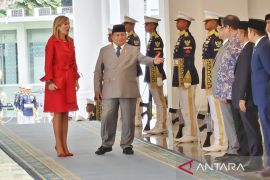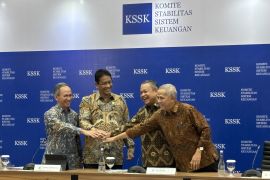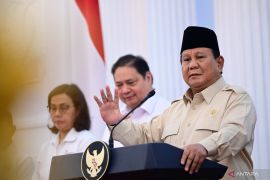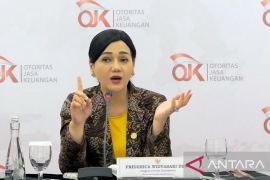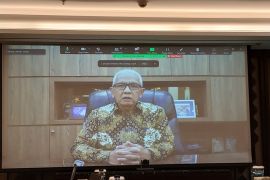During the pandemic, the utilization of digital platforms has increased rapidly, including digital financial services. Electronic payment methods are replacing cash as the main payment method.Jakarta (ANTARA) - Digital financial services can improve the financial inclusion of the community and micro, small, and medium enterprises (MSMEs)), according to the Demographic Institute of the Faculty of Economics and Business, University of Indonesia (LD FEB UI).
"It widens the matters related to formal finance. So, not only one or two aspects are being seen, but also from the side of society and entrepreneurs involved in the digital ecosystem," head of LD FEB UI, Turro Wongkaren, said at an online event here on Tuesday.
Meanwhile, deputy head of LD FEB UI, Paksi C.K Walandouw, affirmed that MSME players have tended to lean more towards using digital products and finance ecosystems in carrying out their business.
"Optimism is something we have always been looking for. This is what makes MSMEs and consumers survive in the pandemic. It is true that in addition to the economic impact, (the digital ecosystem) eases and opens access to formal financial services that were lacking," Walandouw explained.
The majority of MSMEs are more confident and optimistic of utilizing digital services, he informed. The potential of digital businesses is always encouraged and makes them optimistic about the potential of online businesses, he added.
According to LD FEB UI researcher Alfindra Primaldhi, digitalization serves as a catalyst for increasing financial inclusion in the levels of society.
Related news: Ministry encourages Indonesian MSMEs to join digital ecosystem
"Digital adoption pushes the utilization of financial products that have not previously been preferred by the community," Primaldhi said.
"So, now (digital financial inclusion) is not only for consumption and daily needs but also the financial future of its users," he added.
The results of research conducted by LD FEB UI, entitled 'The Role of GoTo Financial towards Indonesia's Financial Inclusion in 2021', were also shared at the event.
The research respondents were consumers and businesses using GoTo financial services and products since before the pandemic, or March 2020, he informed.
A total of 7,355 respondents filled out the questionnaire in full, comprising 5,639 consumers and 1,716 GoTo Financial MSME merchants, he said.
Ninety-five percent of the respondents were spread across 21 cities—Manado, Samarinda, Balikpapan, Pekanbaru, Makassar, Palembang, Lampung, Medan, Denpasar, Solo, South Tangerang, Depok, Semarang, Malang, Bogor, Yogyakarta, Tangerang, Bekasi, Surabaya, Bandung, and Jakarta.
Data was collected online in the second week of August 2021, with a simple random sampling method (M.o.E 2 percent, C.I. 95 percent), he said.
The research showed that digital financial services were able to improve financial inclusion of the community and MSMEs, he added.
"During the pandemic, the utilization of digital platforms has increased rapidly, including digital financial services. Electronic payment methods are replacing cash as the main payment method," Wongkaren explained.
Financial inclusion can expand people's access to formal financial institutions for various needs such as saving, getting insurance, ease of digital transactions, credit for business as well as daily needs, he added.
Related news: Reforming digital space can create fair ecosystem: Ministry
Related news: BNI updates digital service ecosystem information on Harpelnas
Translator: Arnidhya Z, Kenzu T
Editor: Suharto
Copyright © ANTARA 2021

